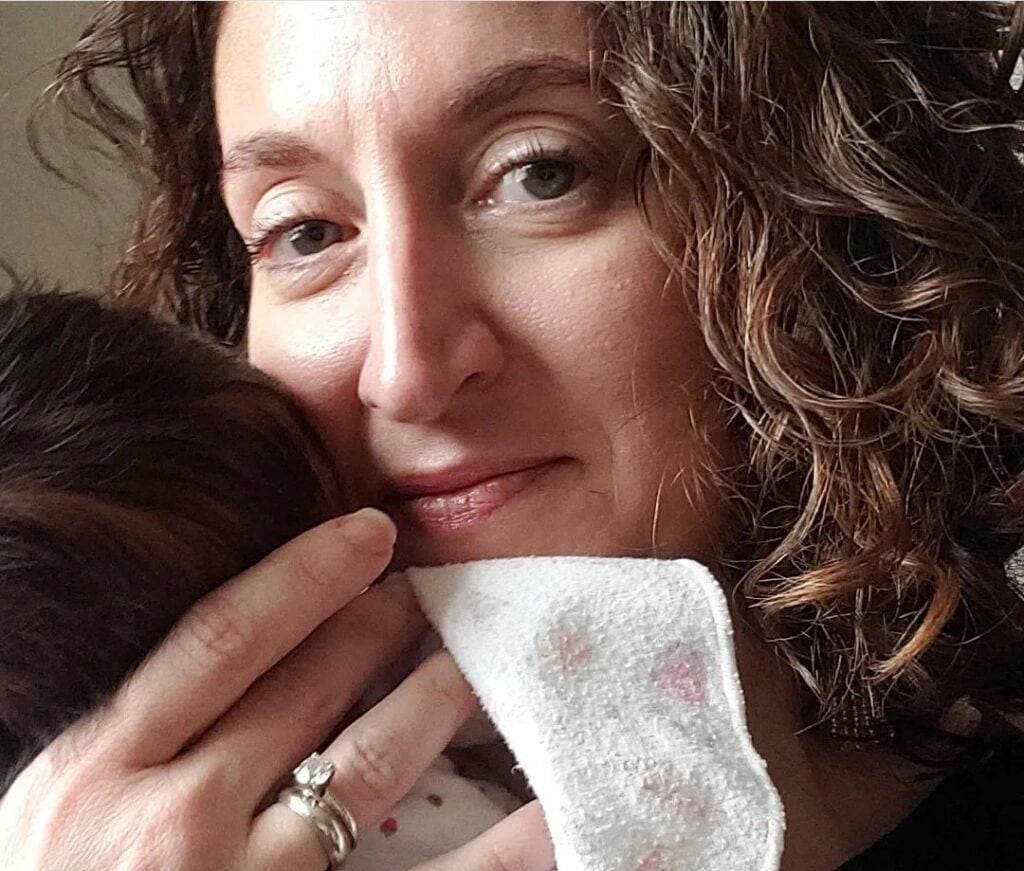Written by Ann Lapin
I’m trying desperately to be respectful of the person speaking to me, but my husband keeps texting me.
First he sends me a selfie of him with Rafi*, then it’s an account of who stopped him on his way into the NICU. Then he suggests I take a selfie with Jillian so we can see them side-by-side and boast that we finally have two babies. People will ask if they’re twins, I’m sure. But they’re not twins. In fact, the babies aren’t even ours. Rafi and Jillian are two in a precious string of babies who have come into our care temporarily while their biological parents explore their parenting options.
Maybe the birth mom doesn’t know if she can parent. Maybe the father isn’t in the picture. Maybe the birth mom decided she wasn’t able to parent initially, but she began to wonder again after delivery. Or maybe the parents didn’t know they were expecting at all.
Whatever the reason, when babies are in my care, their parents are able to make important decisions. They can consider adoption options, set up their support systems at home, or get financial assistance if necessary — steps they might not have had the opportunity to take before the baby was born.
I take care of these babies because I am one of Spence-Chapin’s Interim Care Providers. Over the past eleven years, my family has cared for 45 babies. I rock them to sleep, I feed them at all hours of the day and night, I give them their first baths, and sometimes I capture their first smiles. I record the important (“March 23, Luke’s umbilical cord fell off!”) and the not-so-important (“Jibraan’s favorite song: ‘Wagon Wheel.’ Prefers Darius Rucker to Bob Dylan.”) details of their early days so I can later share them with their parents.
I began volunteering with Spence-Chapin when a local mom posted about it on our neighborhood Yahoo! Group. “That! THAT I can do!” I thought, as I looked at the computer screen.
I was thrilled. I felt like I had finally found a community service that I could perform. So, my husband and I applied. And after months of doctor appointments, background checks, interviews, and letters of reference from close friends, we were accepted.
The hope with the interim care program is that biological parents have time to gain clarity about their decisions without pressure. It also helps adoptive parents feel secure in their status as parents.
People often ask me what the experience of interim parenting is like, but there’s no rule: Each case is different. Babies stay with us, on average, for a few weeks. But one baby stayed with us for three days, another for almost three months. Whatever the scenario, my family and I are available to care for these babies until they go home … wherever “home” may be.
This work can be emotionally challenging. Some parents choose not to visit while the babies are in our care, and some end up being very involved. One birth mom became such a constant in our life that my son asked if we could bake her cookies. We often don’t hear from the parents after our babies go home. But some have become like penpals, sharing photos and funny stories with us as “our” babies grow. Some parents reach out on Mothers’ Day. “Happy Mothers’ Day, Ann. We think of you often and the important role you’ve played in our lives.” Others might send pictures on a birthday: “What was it you called her? ‘The negotiator?’ Yep! She’s still at it!”
I am often blown away by the parents’ gratitude.
Melody was one of the babies I cared for. I had met her parents a couple of times. When they came to take her home, it was as though she was the only one in the room. When they thanked me for taking care of her, my lip started to quiver.
I had never met Jibraan’s dad when I placed him in his arms the day they went home together. “From the bottom of my heart … I can’t tell you what you’ve done for me,” he said. I remember that he towered over me, the size of a linebacker, clenching his jaw to keep the tears from spilling down his cheeks.
When I wave goodbye to the social workers after introducing each baby to their forever family, I always wonder how long it will be before I get to hold another baby. I don’t get attached to each baby, per se. But I get attached to having a baby, to taking care of a baby. I resent my empty arms, and I feel like I’ve lost my purpose. So each time I see Spence-Chapin’s phone number pop up on caller ID, my heart skips a beat.
When the voice on the other end says, “Hi, Ann … are you ready to take another baby?” my first thought is, “Baby! I’m getting a BABY!” Even as the adrenaline eventually calms down and the sleepless nights begin to take their toll, the experience of caring for each baby proves to be more than enough motivation for me to keep going.
The emotions that swell when my babies go home with any parent — their adoptive parents or their birth parents — are not just because of the emptiness I feel in my arms or because of the happiness I have for my babies and their families.
The emotions I feel are because of the fullness in my heart and the gratitude I have for being a part of each of these babies’ stories, even if it’s just for a moment.
To find out more, or if you have any questions, please contact us at 800-321-5683 (LOVE) or email us at [email protected].
___
*Names have been changed.


